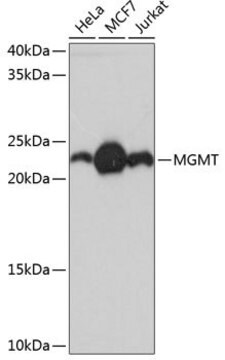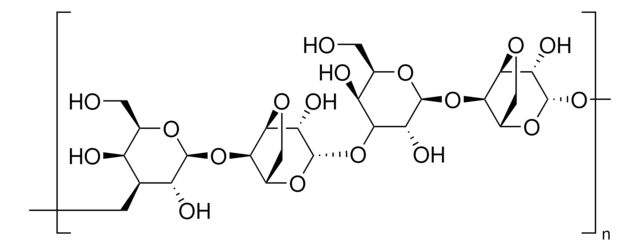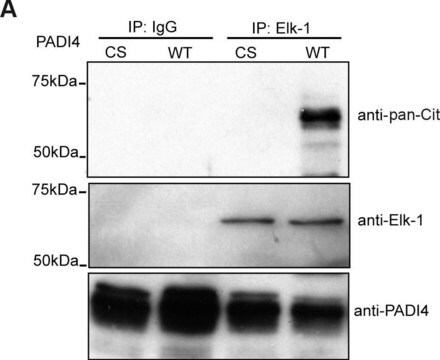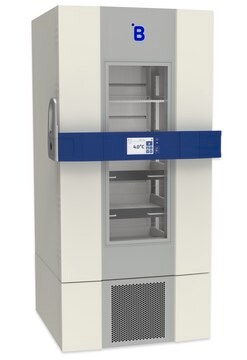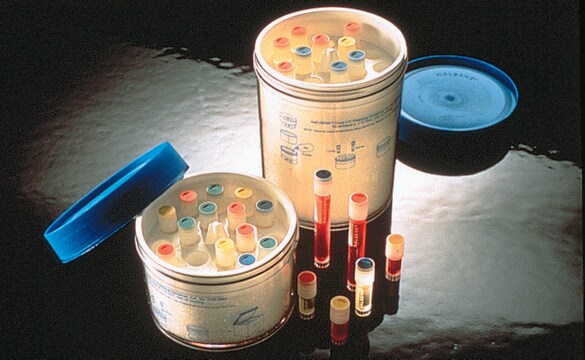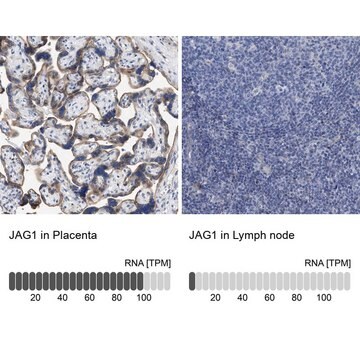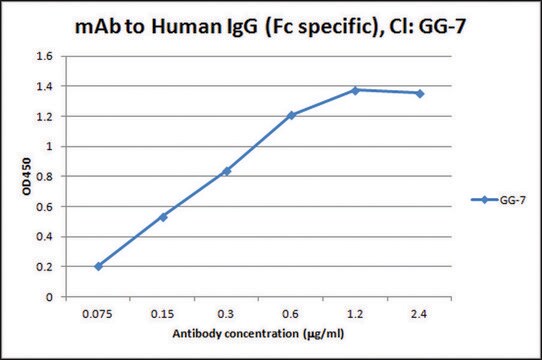C0730
Anti-CD137 antibody produced in goat
affinity isolated antibody, lyophilized powder
Synonym(s):
Anti-4-1BB
About This Item
Recommended Products
biological source
goat
conjugate
unconjugated
antibody form
affinity isolated antibody
antibody product type
primary antibodies
clone
polyclonal
form
lyophilized powder
species reactivity
human
technique(s)
capture ELISA: 0.2-0.8 μg/mL
flow cytometry: 2.5 μg using 106 human T cells treated with PHA
immunocytochemistry: 5-15 μg/mL
western blot: 0.1 μg/mL
impurities
<0.10 EU/μg endotoxin
UniProt accession no.
storage temp.
−20°C
target post-translational modification
unmodified
Gene Information
human ... TNFRSF9(3604)
General description
Immunogen
Application
- Agonist Activity: Measured by its ability to costimulate IFNg secretion by human T cells in the presence of anti-CD3. The ED50 for this effect is typically 5-20μg/mL.
- ELISA capture: It can be used as a capturing reagent in a human 4-1BB sandwich immunoassay in combination with biotinylated human 4-1BB detection antibody and recombinant human 4-1BB as the standard. The suggested coating concentration range is 0.2-0.8μg/ml. The recommended concentration of the detection antibody is 0.1-0.4μg/mL.
- Flow cytometry: 2.5μg/106 cells using Human T cells treated with PHA (phytohemagglutinin).
- Immunoblotting: A working concentration of 0.1μg/ml was determined using recombinant human CD137.
- Immunocytochemistry: 5-15μg/mL using immersion fixed human peripheral blood mononuclear cells.
Biochem/physiol Actions
Physical form
Reconstitution
Disclaimer
Not finding the right product?
Try our Product Selector Tool.
Storage Class
10 - Combustible liquids
wgk_germany
WGK 1
flash_point_f
Not applicable
flash_point_c
Not applicable
Certificates of Analysis (COA)
Search for Certificates of Analysis (COA) by entering the products Lot/Batch Number. Lot and Batch Numbers can be found on a product’s label following the words ‘Lot’ or ‘Batch’.
Already Own This Product?
Find documentation for the products that you have recently purchased in the Document Library.
Our team of scientists has experience in all areas of research including Life Science, Material Science, Chemical Synthesis, Chromatography, Analytical and many others.
Contact Technical Service